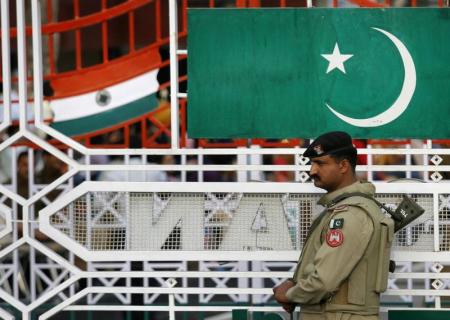Pakistan expels World Vision and other aid groups, accuses them of spreading 'disinformation'

The government of Pakistan has expelled the evangelical relief charity World Vision, Catholic Relief Services and 16 other foreign aid groups and NGOs. The nation’s top human rights official has claimed that they all engaged in spreading disinformation.
The organizations, most of which are U.S.-based with some based in Europe, have halted their operations in the South Asian nation after their appeals of the government’s decision to deny re-registration was turned down.
Pakistan Human Rights Minister Shireen Mazari claimed on Twitter that the groups were denied re-registration because they spread “disinfo” and were not working within “their stated intent.” The news came as the government ordered at least 20 aid groups to close down in December 2017 because of security concerns.
Plan International, a group that advocates for children rights worldwide and serves 1.6 million children across Pakistan, received a letter on Oct. 2 from the Pakistani government, telling the group that the Ministry of Interior was giving it 60 days to cease operations and leave the country.
According to a statement shared with The Christian Post, the Oct. 2 letter was responding to the group’s appeal of the December 2017 decision to decline its re-registration. No reason was given for the rejection.
“We are deeply saddened by the government decision and extremely concerned about the impact it will have on communities, particularly hundreds of thousands of children, the organization is currently supporting, as well as our own staff – who are all Pakistani nationals,” Plan International said.
World Vision, a 68-year-old evangelical aid charity that provides humanitarian assistance, development aid and advocacy to those in need across the globe, completely halted its operations in Pakistan by Nov. 30 and complied with its 60-day deadline.
According to a statement provided to CP, World Vision had 31 staff members in Pakistan and was working on two supporting grants, one of which came from the Canadian government to “strengthen maternal, newborn and child health.”
World Vision’s departure comes after a two-year effort by the organization to re-gain formal registration. The charity began working in Pakistan in 2005.
“World Vision regrets the effect that the cessation of our work will have on the vulnerable communities with whom we worked, but respects the Government’s right to decide who may work in the country,” it said. “It will continue to discuss the possibility of re-starting work under any new legal framework which the government may subsequently introduce.”
A spokesperson for Catholic Relief Services, a Baltimore-based entity of the U.S. Conference of Catholic Bishops, confirmed to CP that it has also complied with the government’s demand to halt activities but could not offer any further comment.
CP also reached out to the Pakistan Humanitarian Forum, a network that represents 15 of the 18 aid agencies that have been expelled from Pakistan. A response is pending.
Umair Hasan, a spokesman for the Pakistan Humanitarian Forum and the country director of Islamic Relief Worldwide, told the Associated Press that the groups affiliated with the forum have helped as many as 11 million poor Pakistanis and contributed over $130 million in aid.
Other organizations denied registrations include American Center for International Labor Solidarity, the Central Asia Education Trust, International Alert, Action Aid, Danish Refugee Council, Switzerland’s Foundation Open Society Institute and the U.S.-based birth control and family planning charity Pathfinder International.
“No organization has been given a clear reason for the denial of its registration renewal applications,” Hasan was quoted as saying. Michael Kugelman, senior associate for South Asia at the Woodrow Wilson International Center for Scholars in Washington, D.C., told NPR in an email that there are lingering suspicions among government officials about the work that these aid organizations are doing.
Kugelman said those suspicions only increased after a Pakistani doctor helped the CIA find and kill Islamic terrorist leader Osama Bin Laden by posing as a worker for an international aid group.
"The state simply doesn't trust these NGOs, as innocuous as their activities may be,” Kugelman told NPR in an email. “There is a sky-high level of mistrust, especially in a country where conspiracy theories are tightly embraced by large swaths of society and the state alike.”
Muhammad Amir Rana, the director of the Islamabad-based Pakistan Institute of Peace Studies, told AP that the action taken against the NGOs is a government-orchestrated attempt to silence voices that are critical of the government.
In her tweets responding to critics of the move, Mazari expressed disapproval with the fact that some of these groups “have political agenda overtones.” Mazari pointed out in her tweet that 80 other nonprofits have been re-registered.
“Btw some denied registration had no projects on the ground beyond seminars, discussions & free trips abroad,” she wrote.
Hasan worries about what the Pakistani government has in store for the future.
“Civil society space has shrunk,” Hasan stated. “Next, they will go after local organizations who receive international funding. It will seriously compromise the independence of organizations, their flexibility of how to operate, where to operate.”
Follow Samuel Smith on Twitter: @IamSamSmith
or Facebook: SamuelSmithCP





















